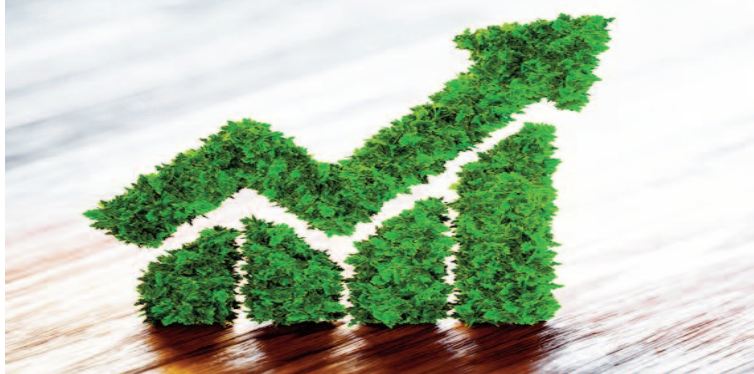
Is it possible to grow the economy while reducing greenhouse gas emissions? Some economists are skeptical about the possibility of this decoupling and call for less growth to save the planet.
Today, growth in GDP often sums up the success of a government’s economic policy. Defined as the sum of the added values of production in a given area, GDP was invented in 1934 in the United States and became the standard for measuring countries’ wealth after World War II.
It has never measured the well-being of individuals, but its height is still considered desirable by the majority of political leaders, including environmentalists.
For proponents of degrowth, on the contrary, it is necessary above all to ensure that natural resources are not depleted, an idea championed in 1971 by the Romanian-American economist and mathematician Nicholas Georgescu-Rogen.
“We should focus on the things that matter rather than on an outcome like GDP which gives the wrong measure of society’s well-being,” said Tim Jackson, professor of sustainability at the University of Surrey in Great Britain. Brittany and author of the book. Boom without growth.
If energy moderation becomes a common goal too broadly, those who want to expand the economy to include the entire economy remain marginalized, at a time when nations at the United Nations are discussing solutions to global warming, the consequences of which are once again highlighted by future devastating events in the future. The Intergovernmental Panel on Climate Change in its latest report.
Tim Jackson criticizes: “Green growth advocates are wrong to have left GDP and its structure as a goal and suggest that separating our environmental footprint through technical means will be sufficient to achieve our climate goals.”
But “When you look at the projections, this seems to be a very difficult goal to achieve. In practice, the goal of increasing GDP takes precedence over the goal of staying within the environmental limits of carbon emissions.”
For the French Vincent Legge, engineer and author of several articles on degrowth, “We do not succeed in having a growth system on a planetary scale that significantly reduces its footprint in terms of biodiversity or resource decline., which could be agricultural land, water, minerals and energy. In general and primarily fossil fuels that account for 80% of what we consume.”
Abandoning the growth target will have profound implications for economic policies.
“A society that grows without growth is a big problem, which is why we have to make the difference between stagnation and decline,” asserts Mr. Legy, who wants to “review our basic needs in depth and respond to them in a sustainable and equitable manner.”
To waste fewer resources, “all goods must be produced in such a way that they can be used for as long as possible,” says Daniel Demling, a professor of management at Heilbronn University in Germany, who is one of the few in his discipline who wants to apply de-growth principles to companies.
But “if the product is sustainable, it means that growth in this market is reaching its limits fairly quickly,” and if the principle is extended to the entire economy, “it means we will lose jobs dramatically,” explains Mr. Demling, thus defending Significant reduction in working hours and increased sobriety for consumers.
Any supposed regression would undoubtedly pose problems of acceptability, especially for disadvantaged populations.
Confirms German economist Ulrich Tillmann, who recalls that in the 1950s the United States had a tax rate of up to 90% of income.
Vincent Lijy, who lives in Budapest and was particularly inspired by the Hungarian economist Karl Polanyi, agrees: “When the market becomes so important and conflicts with social justice and environmental issues, politics must resume the market and put in place a very strong redistribution,” by setting limits.





More Stories
F-16 crashes in Ukraine – pilot dies due to his own error
Namibia plans to kill more than 700 wild animals to feed starving population
Endurance test for EU-Turkey relations and Ankara with Greece and Cyprus